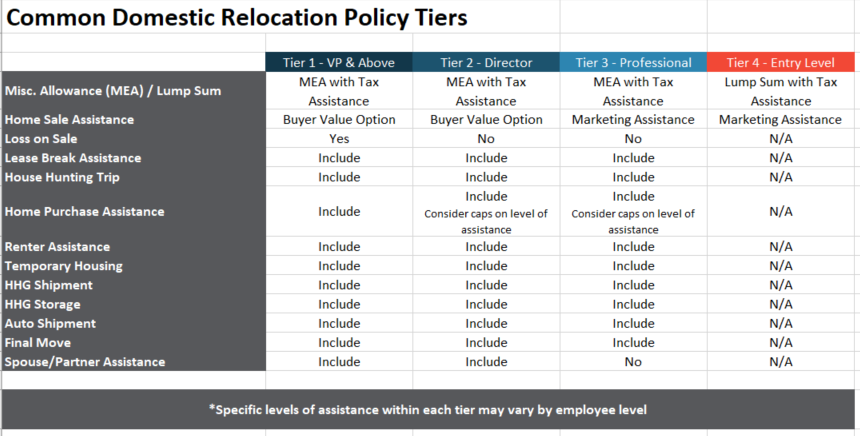Talent mobility is one of the most complex and high-impact responsibilities HR and talent teams manage. Beyond moving employees from one location to another, talent mobility affects compliance, cost control, employee experience, and long-term retention. Without a structured approach, even well-designed mobility programs can lead to delays, unexpected costs, and employee dissatisfaction.
A comprehensive talent mobility checklist gives HR and talent leaders a repeatable framework to manage every phase of the move. Whether supporting a single domestic transfer or overseeing a global mobility strategy, a clear roadmap helps ensure consistency, reduce risk, and deliver a positive employee experience.
Pre-Move Planning and Stakeholder Alignment
Successful talent mobility programs start with thoughtful planning and cross-functional alignment. HR teams should confirm the business purpose for the move, align on role expectations and start dates, and determine whether the assignment is domestic or international. Establishing a realistic budget and reviewing eligibility guidelines within the organization’s mobility policy helps prevent cost overruns. Early collaboration with payroll, finance, and legal teams ensures all stakeholders are aligned before the process moves forward.
Employee Communication and Expectation Setting
Clear and proactive communication is essential to a positive talent mobility experience. Relocations can be stressful for employees and their families, and uncertainty often leads to disengagement. HR teams should provide a written overview of the mobility process, outline the benefits covered versus employee-paid expenses, and set clear expectations for timelines and reimbursement. Discussing housing preferences, family needs, and destination concerns early helps personalize the experience and minimize last-minute challenges.
Vendor Coordination and Service Delivery
Managing multiple service providers is one of the most common challenges in talent mobility. Household goods providers, temporary housing partners, destination service consultants, and immigration vendors must work together seamlessly. Without centralized oversight, miscommunication and service gaps can occur. Partnering with a mobility provider that supports vendor choice while coordinating services allows HR teams to maintain flexibility, ensure accountability, and deliver consistent service across locations.
Compliance, Payroll, and Tax Considerations
Talent mobility carries significant compliance and financial implications, particularly for international assignments. HR teams must account for destination-specific employment laws, payroll adjustments, and tax withholding requirements. Determining which mobility benefits are taxable and coordinating gross-ups when applicable is critical to avoiding employee dissatisfaction and financial risk. Early involvement from tax advisors and immigration specialists helps ensure compliance and prevent costly delays.
Move Execution and Logistics Management
Once planning and compliance are addressed, the focus shifts to executing the move. This phase includes scheduling packing and shipment, coordinating temporary housing, aligning lease or home purchase timelines, and tracking mobility-related expenses. Centralized management during this stage allows HR teams to identify issues quickly, keep the move on schedule, and maintain a positive experience through consistent communication.
Settling-In Support and Employee Experience
Talent mobility success extends beyond moving day. Ongoing settling-in support plays a key role in employee engagement and retention. Destination orientation, community resources, and assistance with schooling or childcare help employees and their families adjust more quickly. Regular post-move check-ins at 30, 60, and 90 days allow HR teams to address concerns, reinforce support, and ensure a smooth transition into the new role.
Program Review and Continuous Improvement
Every talent mobility initiative provides valuable insights that can improve future programs. Reviewing total costs, service provider performance, and employee feedback helps HR teams identify opportunities to increase efficiency and enhance the employee experience. Over time, these insights allow organizations to refine mobility policies, strengthen partnerships, and build more scalable talent mobility programs.
Why a Structured Talent Mobility Checklist Matters
A well-structured talent mobility checklist enables HR and talent teams to deliver consistent, compliant, and people-first mobility experiences. At Global Mobility Solutions (GMS), we help organizations simplify talent mobility by combining best-in-class service providers, transparent cost management, and personalized support. Our flexible model empowers HR teams to move talent confidently while supporting both business goals and employee well-being.










